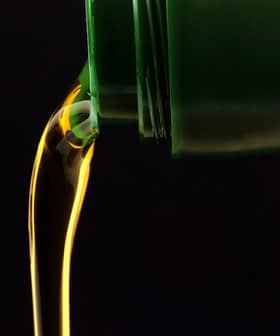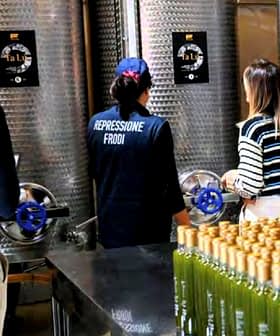Spanish Olive Oil Sector Outraged by Dropped 'Operation Lucerna' Case
Members of Spain’s olive oil sector expressed outrage and disbelief after learning that criminal charges will not proceed against 14 people accused of passing off blends of cheaper oils as olive oil, despite arrests and a year-long investigation. The prosecutor in the case stated that although irregular blends of oils were produced, as well as mislabeled containers, no criminal offense occurred as the products had not yet reached the market and did not pose a health risk.

Lamentable, incomprehensible, unbelievable, an outrage.
Those were among the reactions from members of Spain’s olive oil sector to news that criminal charges will not proceed against 14 people originally alleged to have been part of a scam in which blends of cheaper oils — such as palm and avocado oil — were to be passed off as olive oil.
Back in February, Spanish police announced they had arrested 19 people in the case, which also allegedly involved a complex network of 30 companies and ‘straw men’ from Spain, Italy and Portugal, and at least €3 million ($3.9 million) in sales tax evasion.
The arrests followed a year-long joint probe with Spanish tax authorities, code-named Operation Lucerna, and focused on locations in Jaén and Córdoba.
But ten months later, the prosecutor for the case, Juan Muñoz Cuesta, has said that the criminal complaints will not go ahead.
In a copy of an indictment document dated November 22, obtained today by Olive Oil Times, Muñoz Cuesta first detailed allegations of tax fraud involving various of the parties, before addressing the issue of possible criminal offenses relating to the market or consumers.
He said that although blends of oils had been produced in an irregular way, and in some cases labels did not coincide with containers’ contents, then unless the products were found to endanger health — which they were not — they would need to have been offered or advertised for sale for an offense to have occurred under the penal code.
However, the oils were found on various company premises and had not yet reached the market.
Furthermore, no complaints had been made by aggrieved persons and there was no evidence of any effect on the general interests of any persons, Muñoz Cuesta explained.
The news met dismay and incredulity from many olive oil producers. Various comments on the Facebook page of the Spanish Association of Municipalities of the Olive Tree (AEMO) said the situation left a smear on the image of virgin olive oil in general, and Spanish olive oils specifically.
AEMO spokesman Jose Penco told Olive Oil Times the irony was that olive oil companies often insisted that checks of their products be done before the olive oil left their premises — not from samples taken at the retail stage — because they can’t control the way it is handled after dispatch.
“Where should inspection take place, then, in order to require accountability?” he asked.
The situation left defenseless consumers and the vast majority of the sector, who did the right thing, he said.
A spokeswoman for the Spanish Ministry of Agriculture, Food and the Environment (MAGRAMA) said the ministry, “as should be the case, always values the work of the justice system and and respects it decisions.”







